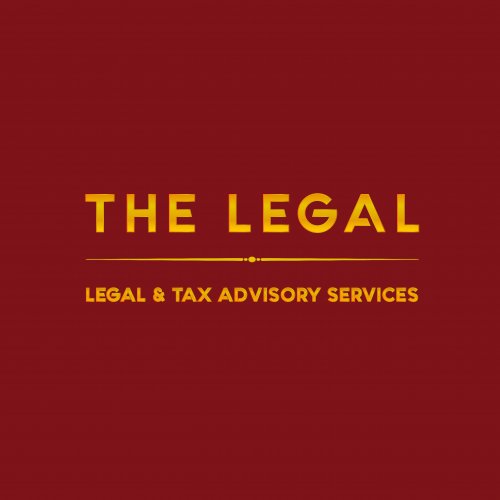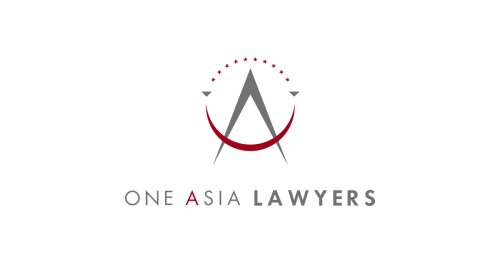Best Information Technology Lawyers in Thailand
Share your needs with us, get contacted by law firms.
Free. Takes 2 min.
Or refine your search by selecting a city:
List of the best lawyers in Thailand
Legal guides written by Mahanakorn Partners Group Co., Ltd:
- Thailand Strengthens Anti-Money Laundering Laws with New Amendments
- Recent Updates to Thailand’s Long-Term Resident (LTR) Visa and SMART Visa Programs
- Managing Risks in Public-Private Partnership Projects
About Information Technology Law in Thailand
Thailand has emerged as a significant player in the Information Technology (IT) sector over the past few decades, thanks to robust economic policies and technological infrastructure development. The country's commitment to becoming a digital economy has necessitated a solid legal framework to address issues related to data protection, cybersecurity, and online commerce. Information Technology law in Thailand encompasses a variety of regulations, including the Personal Data Protection Act (PDPA) and the Computer Crimes Act, which aim to protect both individuals and organizations engaged in digital activities.
Why You May Need a Lawyer
In the rapidly evolving field of Information Technology, there are numerous scenarios where legal expertise may become necessary. Common situations include:
- Ensuring compliance with the Personal Data Protection Act when handling user data.
- Resolving disputes related to software licensing agreements or intellectual property rights.
- Addressing issues under the Computer Crimes Act, such as unauthorized data access or cybercrime allegations.
- Managing contractual arrangements for technology services or purchases.
- Navigating the legal landscape for e-commerce businesses and online transactions.
Local Laws Overview
The legal landscape in Thailand concerning Information Technology is governed by several key statutes:
- Personal Data Protection Act (PDPA): This law governs the collection, use, and storage of personal data, similar to the GDPR in Europe, with an emphasis on protecting individual privacy rights.
- Computer Crimes Act: Aimed at preventing cybercrimes, this act penalizes offenses such as hacking, phishing, and spreading malware.
- Electronic Transactions Act: This law legitimizes electronic contracts and signatures, facilitating secure and efficient online transactions.
- Intellectual Property Laws: These laws protect software developers, hardware manufacturers, and content creators from intellectual property theft or infringement.
Frequently Asked Questions
Is it necessary to comply with the PDPA for a small business?
Yes, the PDPA applies to any business that collects and processes personal data in Thailand, regardless of the size of the business.
What are the penalties for non-compliance with the PDPA?
Penalties for non-compliance with the PDPA can include fines, sanctions, and even imprisonment depending on the severity of the breach.
How can I protect my software from being copied or hacked?
Consider registering your software with relevant authorities under Thailand’s intellectual property laws and implement encryption and other cybersecurity measures.
Are electronic contracts legally binding in Thailand?
Yes, under the Electronic Transactions Act, electronic contracts are legally valid and enforceable in Thailand.
What constitutes a computer crime in Thailand?
Activities such as unauthorized access to computer systems, data interception, and spreading computer viruses are considered computer crimes under Thai law.
Can I resolve IT disputes through arbitration in Thailand?
Yes, arbitration is a common method for resolving IT disputes in Thailand, often providing a more efficient and private resolution process than court litigation.
Is employee monitoring legal in Thailand?
Employee monitoring is legal under certain conditions, but it must comply with the PDPA and other privacy laws, ensuring fairness and transparency.
What steps should be taken if my business experiences a data breach?
Immediately notify the relevant authorities, inform affected individuals, and take steps to mitigate the breach in accordance with the PDPA requirements.
How do I register a patent or trademark for my IT company?
Patents and trademarks can be registered through the Department of Intellectual Property in Thailand. It's advisable to consult with a lawyer for guidance on this process.
Are there any cross-border data transfer restrictions in Thailand?
Yes, the PDPA includes provisions on cross-border data transfers, requiring that adequate data protection measures are in place when transferring data out of Thailand.
Additional Resources
For further assistance and information, consider reaching out to the following resources:
- Thailand's Ministry of Digital Economy and Society
- The Electronic Transactions Development Agency (ETDA)
- Department of Intellectual Property, Thailand
- Legal firms specializing in IT law
- Thai Bar Association with a focus on technology-related legal issues
Next Steps
If you require legal assistance in Information Technology in Thailand, consider the following steps:
- Identify the specific legal area or issue in which you require assistance.
- Research and contact law firms or lawyers who specialize in IT law in Thailand.
- Prepare all relevant documents and information related to your legal issue.
- Schedule a consultation to discuss your case and explore your legal options.
- Consider joining relevant trade associations or network groups for ongoing support and advice.
Seeking legal assistance promptly can help you manage risks effectively and ensure compliance with local IT laws.
Lawzana helps you find the best lawyers and law firms in Thailand through a curated and pre-screened list of qualified legal professionals. Our platform offers rankings and detailed profiles of attorneys and law firms, allowing you to compare based on practice areas, including Information Technology, experience, and client feedback.
Each profile includes a description of the firm's areas of practice, client reviews, team members and partners, year of establishment, spoken languages, office locations, contact information, social media presence, and any published articles or resources. Most firms on our platform speak English and are experienced in both local and international legal matters.
Get a quote from top-rated law firms in Thailand — quickly, securely, and without unnecessary hassle.
Disclaimer:
The information provided on this page is for general informational purposes only and does not constitute legal advice. While we strive to ensure the accuracy and relevance of the content, legal information may change over time, and interpretations of the law can vary. You should always consult with a qualified legal professional for advice specific to your situation.
We disclaim all liability for actions taken or not taken based on the content of this page. If you believe any information is incorrect or outdated, please contact us, and we will review and update it where appropriate.
Browse information technology law firms by city in Thailand
Refine your search by selecting a city.

















